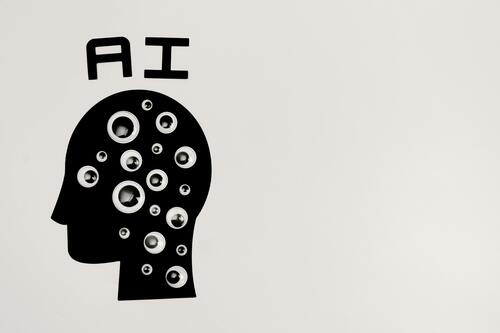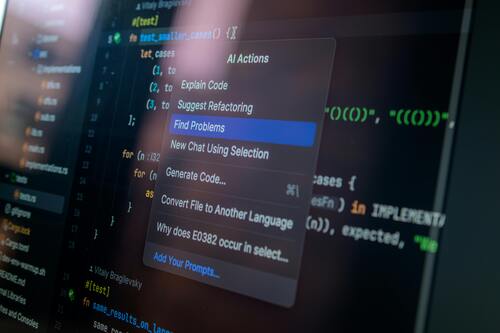The Ultimate Guide to AI Comparison Tools and Software in 2025
Artificial Intelligence (AI) is one of the most transformative technologies of our time. In 2025, AI is expected to be more integrated into various sectors, such as healthcare, finance, marketing, and even creative fields like art and music. With so many AI models and tools available, knowing how to compare them efficiently is key to choosing the best solution for your needs. This comprehensive guide explores the best AI comparison tools, benchmarks, and models in 2025, helping you make informed decisions.
Understanding AI Models and Their Comparison
Before diving into specific tools and software, it’s important to understand what we mean by AI models and why comparisons matter. AI models are algorithms trained to perform specific tasks like image recognition, natural language processing, or data analysis. With an increasing number of AI tools on the market, it’s critical to evaluate their capabilities to ensure they meet your requirements.
The Importance of AI Model Comparison
Comparing AI models allows businesses, developers, and researchers to:
- Select the most efficient model for specific tasks.
- Understand the strengths and weaknesses of different models.
- Optimize the use of resources by choosing the right AI software.
- Stay ahead of technological advancements.
Top AI Comparison Software Tools in 2025
With so many options available, using comparison tools is essential for finding the right AI software for your projects. Here are the best AI comparison tools in 2025.
1. Best AI Comparison Software
Some of the top AI comparison software available today include:
- Google AI Benchmark: A tool designed to compare AI performance across various platforms. It ranks models based on processing speed, accuracy, and resource efficiency.
- IBM Watson Studio: Known for its easy-to-use interface, Watson Studio helps you compare AI models side by side for different machine learning tasks.
- DataRobot: This software provides automated machine learning model comparisons, allowing users to evaluate different models’ accuracy, speed, and usability.
2. Best AI Comparison GitHub Repositories
GitHub hosts a variety of AI comparison projects and open-source models. Some popular repositories to check out include:
- AI-Bench: A repository for benchmarking AI models in various domains.
- TensorFlow Models: Compare the performance of TensorFlow-based models on different datasets and use cases.
- MLPerf: A highly respected comparison tool for machine learning model benchmarking.
3. Best Free AI Comparison Tools
Many free AI comparison tools are available for developers and businesses on a budget. Here are some noteworthy ones:
- MLPerf: As mentioned earlier, it’s free and open-source, providing detailed benchmarks on AI model performance.
- OpenAI GPT-3 Benchmark: Free tools for comparing language models such as GPT-3, widely used in conversational AI.
- AI Combinator: A free tool for comparing different AI algorithms and tools across industries.
How to Compare AI Models Side by Side
Comparing AI models side by side is essential for selecting the right tool for your needs. Here’s how to do it effectively.
1. Focus on Key Performance Metrics
When comparing AI models, the most crucial metrics include:
- Accuracy: How often the model makes correct predictions.
- Speed: How fast the model processes data.
- Efficiency: The resources (e.g., memory, computing power) required by the model.
- Scalability: How well the model can handle increasing amounts of data.
Using AI comparison charts or benchmarks, you can compare these metrics to choose the best model for your application.
2. Evaluate the Use Case
Different AI models are suited for different tasks. For instance, models trained on text data (e.g., GPT-3 for natural language processing) may perform poorly on image recognition tasks. It’s essential to evaluate the model based on the specific use case and type of data you’ll be working with.
3. Review User Feedback and Expert Opinions
Before selecting a model, check reviews and recommendations from industry experts. Websites like Reddit and GitHub often feature user-driven discussions about the best AI models for specific tasks.
Best AI Benchmark Ranking Websites
Benchmark rankings are crucial for understanding how AI models compare in real-world scenarios. These rankings can be based on multiple factors, including speed, accuracy, and general performance.
1. AI Benchmark
AI Benchmark provides rankings for AI models based on their performance in various applications, from speech recognition to computer vision. The website offers comparative charts that display how different models perform in terms of latency, throughput, and efficiency.
2. MLPerf Benchmarks
MLPerf is another respected platform that benchmarks AI models. It is widely used in academic and industrial research to compare models on multiple tasks, including natural language processing and reinforcement learning.
Best AI for Coding and Price Comparison
AI is increasingly being used for coding and price comparison tasks. Let’s explore the best models for these applications.
1. Best AI for Coding
AI tools like GitHub Copilot and Tabnine are revolutionizing coding. They assist developers by suggesting code snippets, completing functions, and offering debugging tips. When comparing coding AIs, focus on factors like:
- Accuracy of code suggestions.
- Integration with development environments.
- Support for multiple programming languages.
2. Best AI for Price Comparison
AI-powered price comparison tools, such as Shopify AI and PriceRunner, help consumers and businesses find the best deals. These tools use AI algorithms to analyze market trends, predict price fluctuations, and recommend the most affordable products.
Best AI Chatbot Comparison
Chatbots are another area where AI shines, and comparing them can help businesses provide the best customer service. Popular chatbot AIs include:
- ChatGPT: Known for natural conversations and easy integrations.
- Dialogflow: Offers advanced NLP capabilities for chatbots.
- Watson Assistant: A flexible chatbot platform for businesses.
Future of AI Comparison in 2025 and Beyond
Looking ahead, AI comparison tools will continue to evolve with improvements in benchmarking, model performance, and use-case adaptability. Here’s what we expect in the near future:
- Increased focus on ethics and explainability: AI tools will offer more transparency, helping users understand how models make decisions.
- Integration of more advanced models: As AI models become more powerful, comparison tools will need to include benchmarks for state-of-the-art systems.
- Greater accessibility: Open-source AI tools and models will make it easier for anyone to experiment with AI, regardless of their technical expertise.
Conclusion – Making Informed AI Decisions
AI is evolving rapidly, and the need for comprehensive comparison tools is greater than ever. By carefully evaluating AI models, benchmarks, and software, you can ensure that you select the best tool for your needs. Whether you’re comparing AI models for coding, chatbots, or image recognition, using the right tools will help you stay ahead of the curve and make the most of AI technology in 2025 and beyond.


